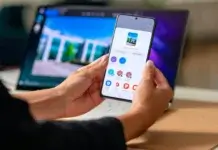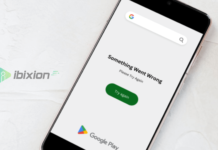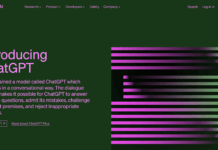The advent of ChatGPT has sparked considerable anxiety within the educational sphere. Some educators are apprehensive that AI writing tools, like ChatGPT, could be exploited to circumvent intellectual effort. However, platforms such as Turnitin have swiftly adapted to this trend and have acquired capabilities to detect AI-produced content. So, is ChatGPT detectable by Turnitin? The answer is yes. Recent updates to the system have incorporated AI detection functionality, which, when combined with other Turnitin systems, can identify AI-authored content with 98% accuracy.
Is ChatGPT Identifiable by Turnitin?
ChatGPT is an AI language model that can generate text that closely mimics human responses. Unsurprisingly, Its popularity overgrew; some attempted to use ChatGPT to plagiarize work. However, Turnitin can now detect not only AI-generated but also AI-assisted writing. This offers educators a degree of reassurance, knowing that their student’s work will be meticulously scanned for plagiarism. Despite ChatGPT’s ability to generate essays, provide template suggestions, and solve mathematical problems in seconds, the recent developments by Turnitin have alleviated educators’ concerns.
Chris Caren, CEO of Turnitin, stated, “Software developments to detect AI-generated writing have been ongoing for over two and a half years. Academic guidelines will also be adjusted to address the challenges presented by sophisticated AI writing tools.”
Turnitin will continually adapt to keep up with evolving demands like AI-generated content. For educational institutions, tools like Turnitin must facilitate the detection of non-original content and ensure students submit original work.
Can Universities Detect ChatGPT?
Universities can now detect ChatGPT and similar AI content generators. If a student submits work through a university’s learning management system, such as Turnitin, detection of AI-produced content and plagiarism is expected.
It is paramount to be open about using tools like ChatGPT to prevent any complications. Cite your source properly and use ChatGPT for fast research, but do not simply copy and paste the content.
Can Turnitin Detect Copy-Pasting?
Indeed, Turnitin can identify content that has been copied and pasted if the source is available online. Although it initially struggled with texts generated by ChatGPT, improvements have been made to ensure Turnitin can fully detect content produced by ChatGPT and other chatbots.
How Does Turnitin Operate and Detect AI Content?
While Turnitin doesn’t disclose its internal workings, the software itself is AI-based. It scans phrases in a document, analyzes them, and compares them to extensive online data. The challenge of detecting plagiarism in content produced by ChatGPT lies in its unique responses, which do not provide any cross-reference material for Turnitin.
Although the tool isn’t flawless, it is highly accurate and only flags content when it’s 98% confident it’s AI-written. The detection capabilities of Turnitin extend beyond ChatGPT and can detect content from other AI text generators with its latest updates.
Are there Limitations to AI Detection?
Despite recent advances in detecting AI-generated content, are there potential limitations? Detection could be compromised by new or uncommon AI models that have yet to be thoroughly trained or analyzed. As AI models continue to progress, a perpetual game of cat-and-mouse between AI generators and detection systems could affect long-term detection effectiveness.
Some argue that tools like ChatGPT could assist in fostering critical thinking skills, a compelling notion in an era where almost any question can be looked up online. However, while ChatGPT can aid in idea generation, it does not inherently enhance critical thinking skills. Over-reliance on AI-generated content for solutions might sidestep the cognitive processes integral to critical thinking. Nevertheless, when used ethically, ChatGPT can be a valuable research tool.





































![Best Gaming Keyboards Under ₹2000 in India [2025 Edition]](https://ibixion.com/wp-content/uploads/2025/05/universal_upscale_0_e88e4495-cad7-4ea6-a771-51cbbabcf328_0-324x160.jpg)



![Best ways to Watch Cartoons Online: Free & Paid [Website List] watch cartoons online](https://ibixion.com/wp-content/uploads/2020/05/small-boy-with-down-syndrome-watching-cartoon-on-tv_t20_oRlole-1-100x70.jpg)




![BombSquad Promo Code [400* Free Ticket] Latest & Updated](https://ibixion.com/wp-content/uploads/2017/05/bombsquad-promo-code-main-100x70.png)